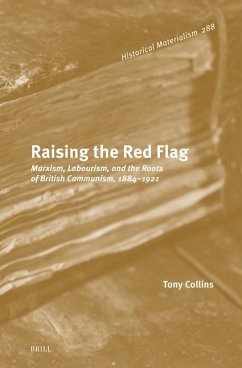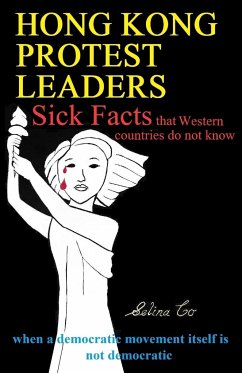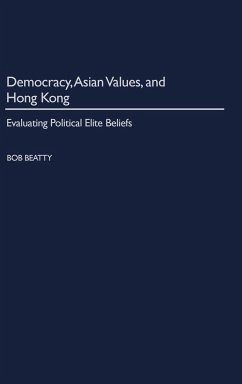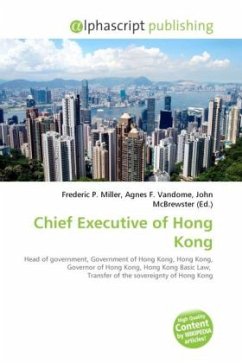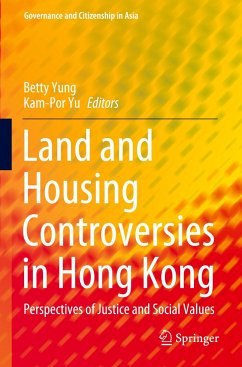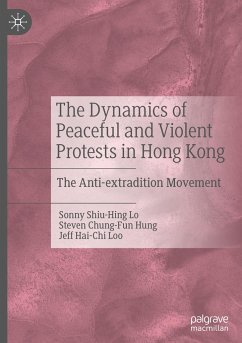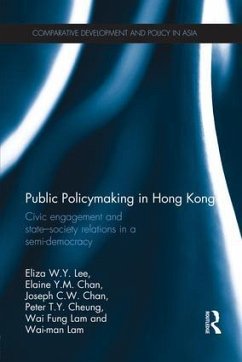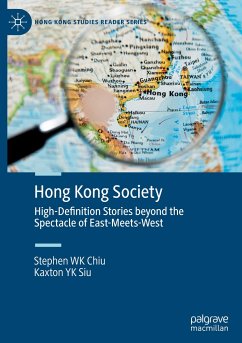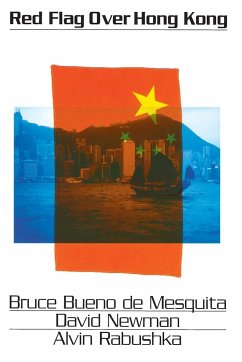
Red Flag Over Hong Kong
Versandkostenfrei!
Versandfertig in 1-2 Wochen
69,99 €
inkl. MwSt.

PAYBACK Punkte
35 °P sammeln!
Lucid and compelling, this is an essential guide to the turbulent future of Hong Kong. The authors begin with a concise historical overview, tracing how Hong Kong with its unique geographical setting, &BAD:quot;textbook&BAD:quot; freemarket economy, and industrious population, developed into one of the world's richest territories. Based on their own expertise in policy choices and a collection of data from a wide range of expert observers, the authors applied a scientific model of decision making to Hong Kong's unknown future.






